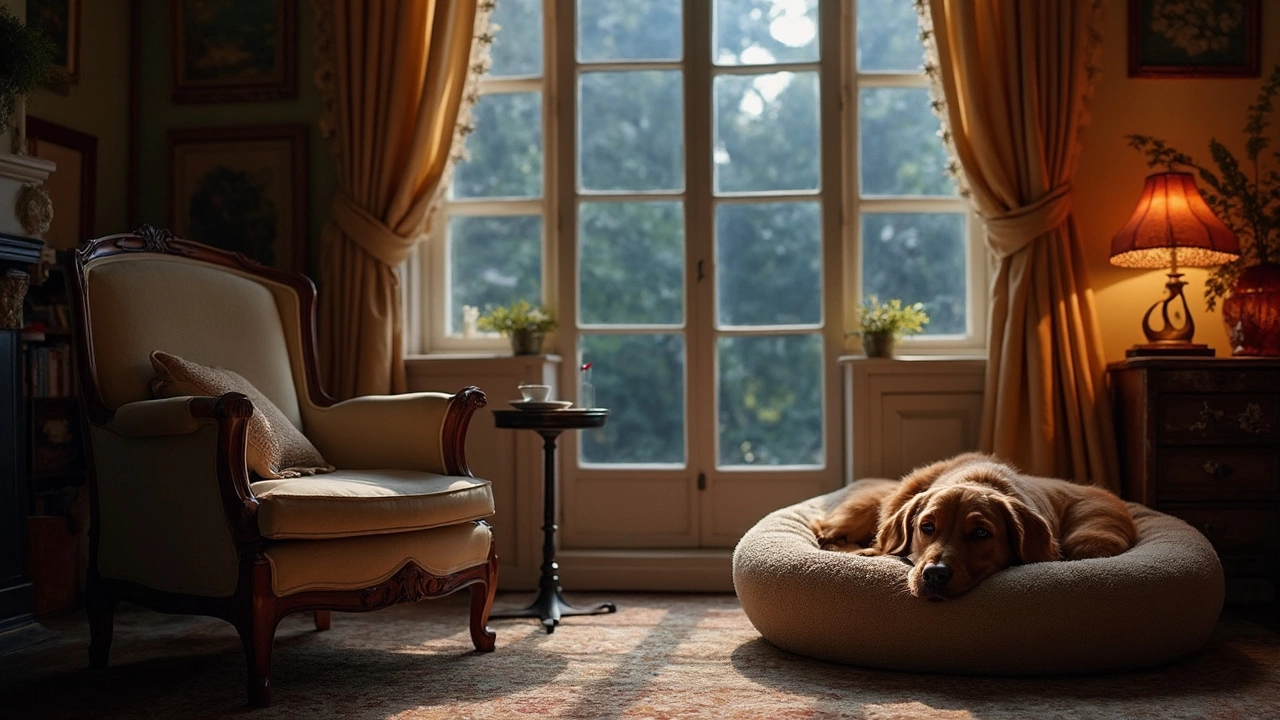Darkness and Your Pet: What You Need to Know
When the lights go off, many pet owners wonder if their furry friend feels uneasy. The answer depends on the animal, its age, and its routine. Dogs, especially those with anxiety, often look to you for cues. Cats, on the other hand, are natural hunters and tend to be fine with a bit of night‑time darkness. Understanding these differences helps you make simple changes that keep everyone comfortable.
Why Darkness Affects Pets
Dogs rely heavily on sight and scent. When it gets dark, their vision drops, and they may feel less secure. This can trigger barking, pacing, or even whining. Older dogs or breeds that are prone to anxiety are the most likely to react. Cats have a tapetum lucidum, a reflective layer behind the retina that makes them see better in low light, so they usually handle darkness without a fuss.
Another factor is routine. If you always turn the lights on at bedtime, your pet gets used to that pattern. Change the routine suddenly and you might see a spike in nervous behavior. The same goes for new environments – a dark room can feel unfamiliar and unsettling for a pet that’s just moved in.
Practical Nighttime Solutions
First, test a low‑level night light in the area where your pet sleeps. A soft glow can reduce anxiety without keeping the room bright. Look for a plug‑in night light that automatically turns on at dusk; it’s cheap and works well for most dogs.
If your dog still seems uneasy, try a calming scent like lavender or a pet‑specific pheromone diffuser. These can help create a soothing atmosphere without altering your lighting setup.
For cats, you don’t usually need a night light, but a small perch near a window can give them a view of the outside world. This satisfies their natural curiosity and keeps them occupied during the night.
Another easy trick is to keep a routine of a short walk or play session before bed. Burning off excess energy means your dog is more likely to settle down, even if the room is dark.
Finally, check the sleeping area for hazards. Make sure there are no cords or small objects that could cause accidents in low light. A tidy space combined with a gentle night glow creates a safe zone for both dogs and cats.
By paying a little attention to how darkness impacts your pet, you can avoid nighttime stress and enjoy a quieter house. A night light, a calming scent, and a consistent bedtime routine are all you need to keep your four‑legged friend relaxed after the lights go out.
Posted By Bryndle Redding On 26 May 2025 Comments (0)
Should Dogs Sleep in the Dark? What Science and Common Sense Say
Do dogs really need pitch-black rooms to get good sleep? This article unpacks whether darkness matters for your pup’s bedtime, pulling from both research and real-life habits. If you’re unsure about leaving a nightlight on or shutting the blinds, you’ll learn what helps dogs rest best. You’ll get practical tips on how to shape the perfect sleep environment for your dog. By the end, you’ll know how to spot what makes your furry friend comfy at night.
READ MORE